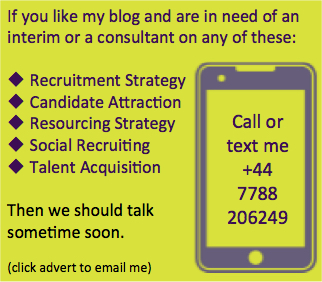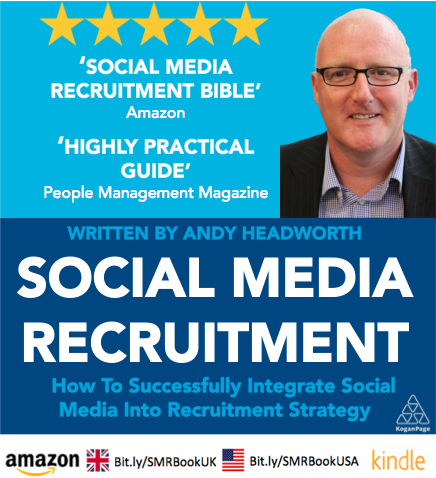The Square Peg And Round Hole Candidate Syndrome
How many times are you asked to recruit a candidate with a set of skills that is - shall we say - ‘unrealistic’? It is more common than we care to realise, and yet the practice is seemingly relentless. Every single bit of HR and talent information we see tells us how hard it is for companies to find the right talent and skills to meet their business needs. On many occasions it seems that hiring managers and business leaders believe that researchers / talent sourcers / recruiters are registered with the Magic Circle, and able to conjure these candidates up!
There is still a desire from (too many) companies to recruit the perfect person for their job roles. You know what I mean - you have seen the role profiles that are four pages long with every single skill and experience marked under the ‘must have’ section, even when they have no clear understanding of whether these people actually exist. Why?
There are two really good tools to help you find and engage talent later in the post
Sometimes it is even simpler than that. Companies in different industry sectors will only recruit people from inside their own sector, not even considering the advantages of bringing in valuable knowledge and skills from other industries. This ‘doing what they have always done’ mentality will ultimately backfire on them of course, but it is painful to be on the receiving end of it!
Obviously there are roles that demand certain skills and/or qualifications to do certain jobs, but there are also very many that don’t require them. A good example of this is a degree - how many jobs actually need a candidate who has a degree? As a recruiter, do you ever ask your hiring manager why candidates need a non-relevant degree to be considered for a role? If they need the knowledge the degree contains then there is no argument, but do you need a degree for a sales role, for example?
You could of course argue it is the role of the recruiter to push back and challenge the hiring managers in these circumstances, using data and research to help them (I find LinkedIn is great for doing this). This is something that an in-house recruiter can do (most of the time), less so for a 3rd party contingent recruiter, who will only get their fee if they find the RARHS candidate. (can you work out the anachronism? Check the end of the post for the answer)
Personally, I work on the premise of always recruiting for 70/75% of the skills needed, allowing ‘room’ for training, personal development and growth. This also has the effect of decreasing attrition - yes it requires a little more training and development, but it is worth it. It is also quicker to hire (theoretically) and allows you to focus on a better culture and personal fit to the company’s values. You can (often) train the skills needed, but not so much the culture fit.
With the changing talent landscape and the need to expand the talent pool more employers are moving to assessments to help them reduce their risk in decision making, and at the same time predict the future top performers. This is happening across the entire employee lifecycle, particularly for the recruitment of managers, white-collar workers, graduates and apprentices. Over 50% of companies are now using online assessment (Cut-e 2016 Global Assessment Barometer), with more employers now looking to assess for loyalty, honesty, integrity, commitment, leadership, creativity, cultural fit, decision making, emotional health/ability to cope with stress and, of course long-term potential.
What I find fascinating is that many of these are now being assessed through games played on your mobile phone. They are all based on science and are designed by psychological experts I have looked at three companies in the last month where just playing a 10 minute games has resulted in a detailed multi-page personal assessment! If you are interested in this form of gamification then check out Pymetrics, Knack and Arctic Shores.
While these are an essential part of the process, it all starts with the initial need for the role from the hiring manager. Having spent time with a good number of (corporate / in-house) recruiters recently, I have been very surprised with the apparent willingness of the recruiters to try and find the ‘square peg for the round hole candidates‘, and not push back on the requirements the hiring managers give them. When I have challenged them, two things came to the fore - communication (i.e none other than an email!) and confidence to challenge the hiring manager.
Here are ten questions I used to help them challenge and expand the the job descriptions they received (usually by email). Many recruiters reading this will (I hope) be asking these questions already, but if not (or as a reminder) you may find them useful.
How to work with a hiring manager to expand the pool of candidates
This needs to be done when meeting with the hiring manager. If they haven’t got time to meet or speak with you to ensure they get the best candidates, then they are not taking their recruitment seriously. And remember, never feel embarrassed about continuously using the word WHY.
- Why do you need to hire someone? (New role, replacement - why did the person leave etc).
- What is the role and what will the new recruit actually be doing? (Ask current incumbents for clarity, if needed).[Before you go to the meeting, do your research on the role and the market. Even take a prepared LinkedIn search with you to show them how realistic their expectations are, so you can really drill down No.3 below]
- Which skills are absolutely essential? (These become the core of your keyword search strings for sourcing) A useful approach is to ask If they only want to see CV’s with them on it and none without them.
- What are the ’nice-to-have’ skills?
- What don’t you want to see? (flushing out some of the bias early on)
- What would be the icing on the cake? (Competitors, companies, profile etc)
- When do you need to hire them by? (Don’t ask when you want the CV’s by as they will always say ‘immediately’. Managing their expectations here is so important.)
- Who are the three members of your team that are the closest match to what you need? (Then using Hello Talent - a brilliant FREE talent pooling tool - add their online profiles (LinkedIn etc) and you can do a Find Similar Profile Search on the app. Every little helps!)
- If you are going to write a job advert, before you post it run the content through a tool called Textio which will tell you how good your content is and whether it will likely appeal to your target candidates. You can also use it for your emails. Trust me - this is a really good tool!
- Stay in regular contact with your hiring manager, keeping them informed all the time. This goes without saying, especially if it is a tough requirement.
These are obviously part of a good recruiter’s repertoire, but some of these skills are seemingly becoming forgotten in the demand for talent. Pushing back does and asking more questions is essential. It does work and it means you will get a better understanding of what you are trying to recruit.
Did you guess what RARHS stood for then? Easy of course……… Rare As Rocking Horse Sh*t 🙂
If you and/your recruiters are having issues around sourcing and attracting talent, then maybe it is time for you to share some of your nice coffee with me. Just send me an email and let’s have a chat about how I could help you.
And finally if you haven’t got your copy yet, don’t forget to buy a copy of my new book where there is a full and detailed chapter on candidate sourcing including using LinkedIn.











